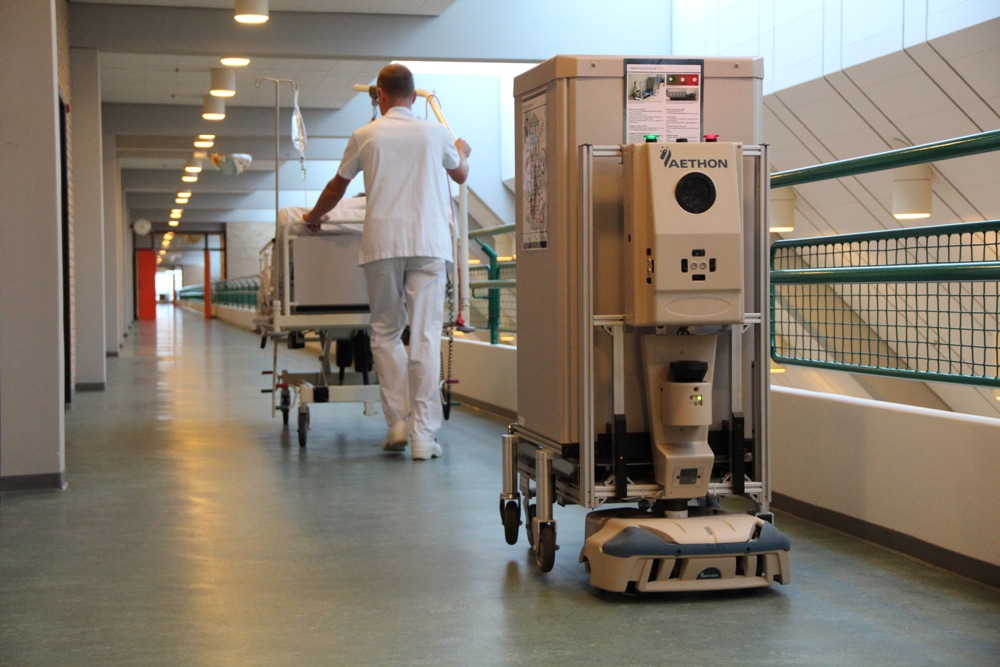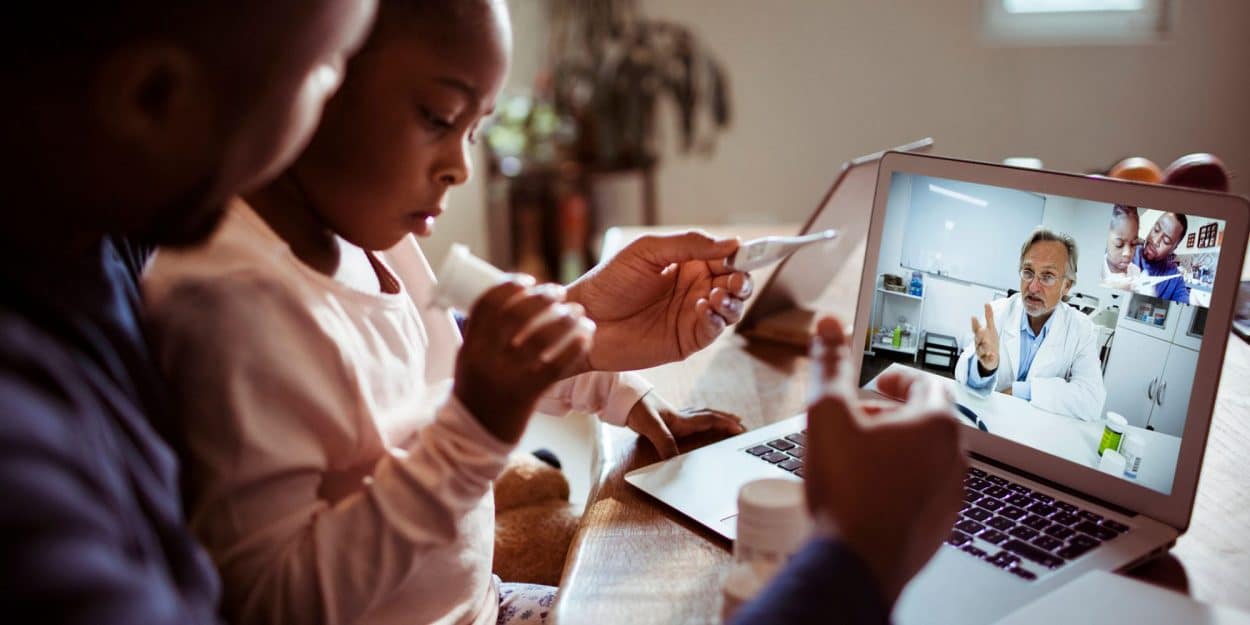The role and future of virtual care and digital therapeutics was a hot topic at this year’s MEDICA 2021. Medical professionals and industry experts discussed existing digital solutions and looked at the potential for further digitization in healthcare settings.
Experts examined the growth of virtual care following Covid-19 and discussed its higher levels of acceptance among both patients and clinicians because of the pandemic. Michael Heinlein, Managing Director of GTMHC Digital Care GmbH, which focuses on the digitization of care facilities, said that with this growth it was important not to lose sight of the human.
He explained:
“Technology is only a support for changing processes. Telemedicine, telemonitoring and digital solutions for assisting with documentation—behind it all, there should be transparency so people can work better together. My objective is always that digitization is not an end in itself, you have to think about what you would like to achieve. There should only be digitization where it makes sense.”
Precise Communication
Jaakko Nurkka, Co-Founder and CEO of Cliniserve, which offers digital communication and task management for hospitals, presented his solution for improving efficiency. He said:
“We started talking to nurses and realized that a huge amount of time was being wasted on tasks they were not supposed to be doing—only about 15% of their time was actually going on patient care.”

For example, the patient has one red button to push for anything they require; this often summons a nurse as there may be a medical emergency. He added:
“What we developed is a software system that allows a patient with a smartphone or bedside table to communicate to the nurses exactly what they need. So, if someone just needs a glass of water, it doesn’t have to be a nurse that brings it. Our system has evolved in the last five years into a task communication and delegation system, where tasks can be delegated to the right person. In some logistical tasks, such as bringing a glass of water to a patient or transporting samples to a lab, we can now even use logistics robots.”
Virtual Reality
Daniela Schumacher, founder of PsyCurio, introduced her company’s virtual reality (VR) solutions for psychotherapy. She explained:
“VR can really help to address psychological disorders on an emotional level and can lead to long-term changes through experience stimulation. Our products can be used for alcohol and nicotine addiction, social phobia and depression. Our solutions are interactive and effective, and we can see in EEG scans that the same potential is evoked in VR situations as in real life situations.”
Exposure therapy and other treatments, where cue-exposure tasks and approach-avoidance tasks might be used, are perfect examples, she said.
“With depression, we can also use a range of techniques through VR, including mindfulness and cognitive restructuring where patients are given an alternative view of their situation.”
Better Medicine
Dr Lars Riedemann, a neurologist at the Heidelberg University Hospital, has been working in the field of medical extended reality (XR), encompassing VR, augmented reality (AR) and mixed reality (MR). He said:
“Leading hospitals across the world are now conducting research into medical extended reality. Extended reality devices have been approved for use in the US for visualization for cardiac surgery, as well as for operation planning, tumour resection and neurological rehabilitation. Digitization needs to have a purpose and that purpose must be to lead to better medicine.”
Dr Anne Sophie Geier, MD of German Digital Healthcare Association, discussed virtual care following Covid 19. She observed:
“Since the pandemic, digital solutions have been used by a broader audience—this is because they have certain advantages and can offer high-quality, safe and efficient care.”

Telemedicine, telemonitoring and digital therapies are all more widely used and there have now been some 36 million downloads of Germany’s Corona Warning app to date, she said.
“In digital applications, we now have solutions for neurological diseases, oncological diseases and psychological diseases etc.—and I am sure we will see a lot more indications over the coming years.”
Greater Acceptance
Inga Bergman, a digital health consultant on a variety of health and pharmaceutical advisory boards, agreed that the pandemic had led to consumers being more open to digital health tools. She said:
“The digital industry world is constantly changing, and the pandemic has really pushed this trend.”
Virtual care solutions will lead to new roles for humans in healthcare, she suggested.
“I think roles for medical personnel will change to teacher, curator, motivator and storyteller, helping patients to understand their health.”











